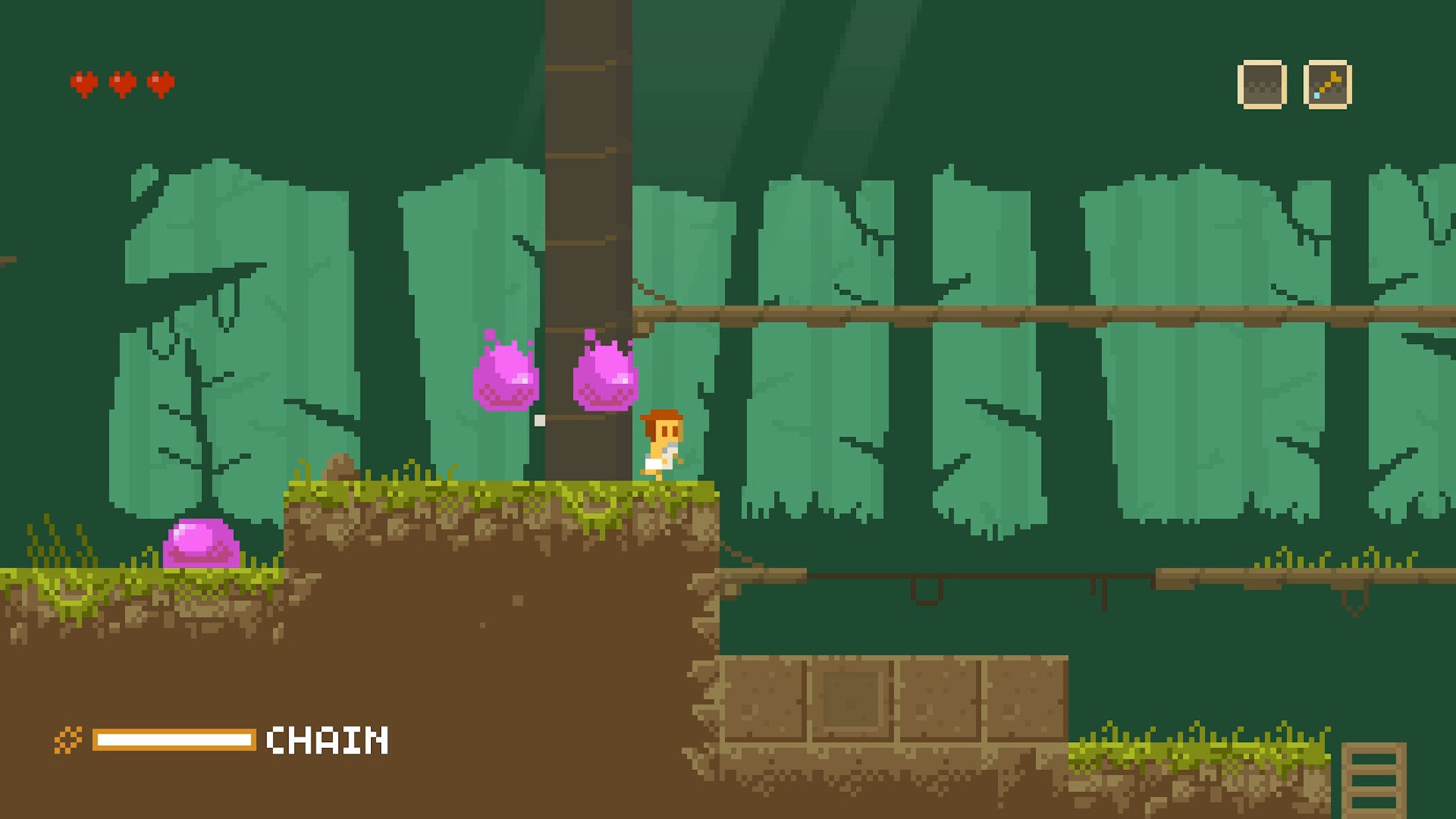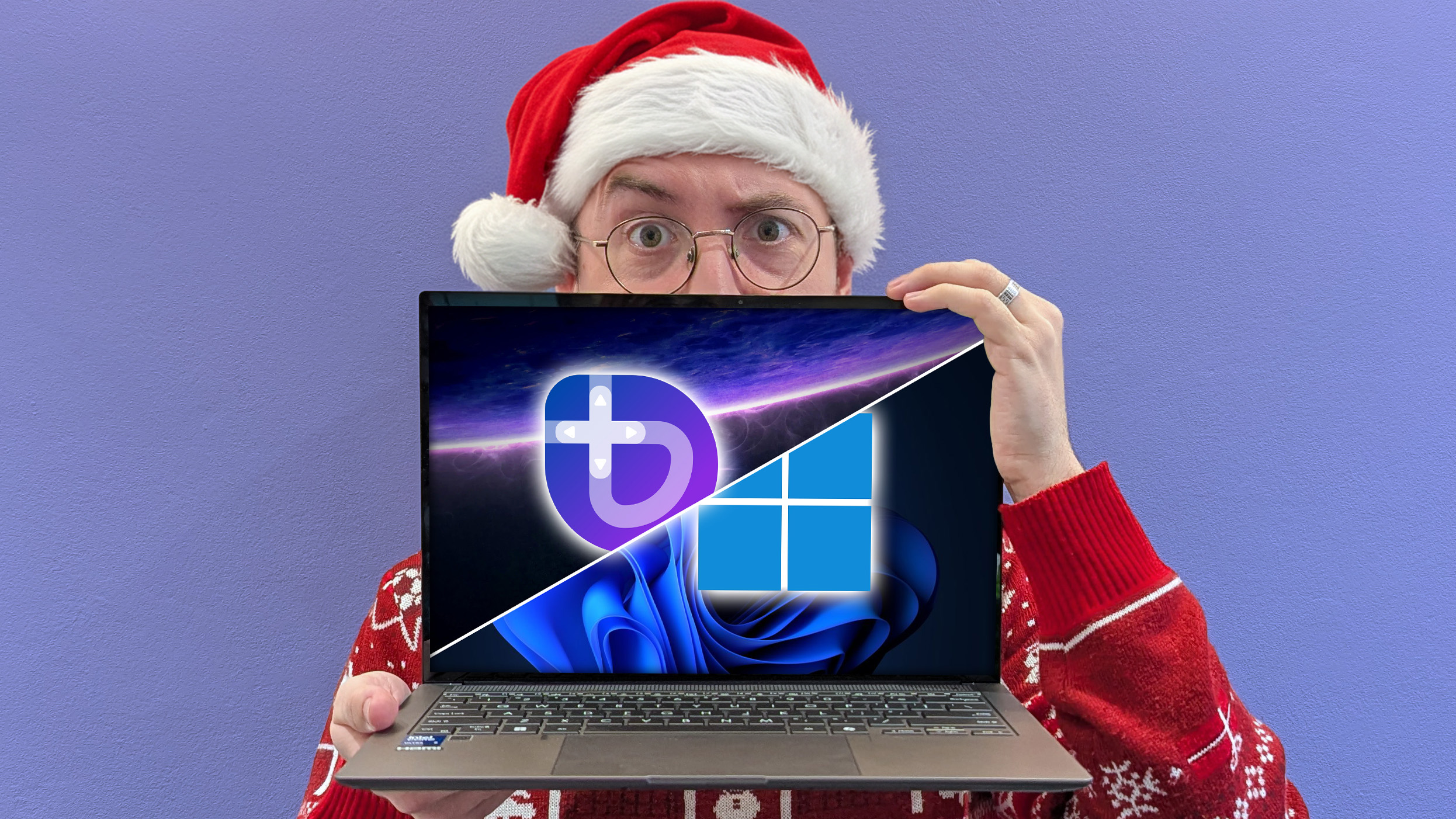That unusual source of inspiration and game design makes Elliot Quest, from Ansimuz Games and PlayEveryWhere, stand out from the crowd. With an old-school sense of adventure and mystery, it could almost be a great platformer ... if only it wasn't so frustratingly unfriendly to players.
Some kind of story
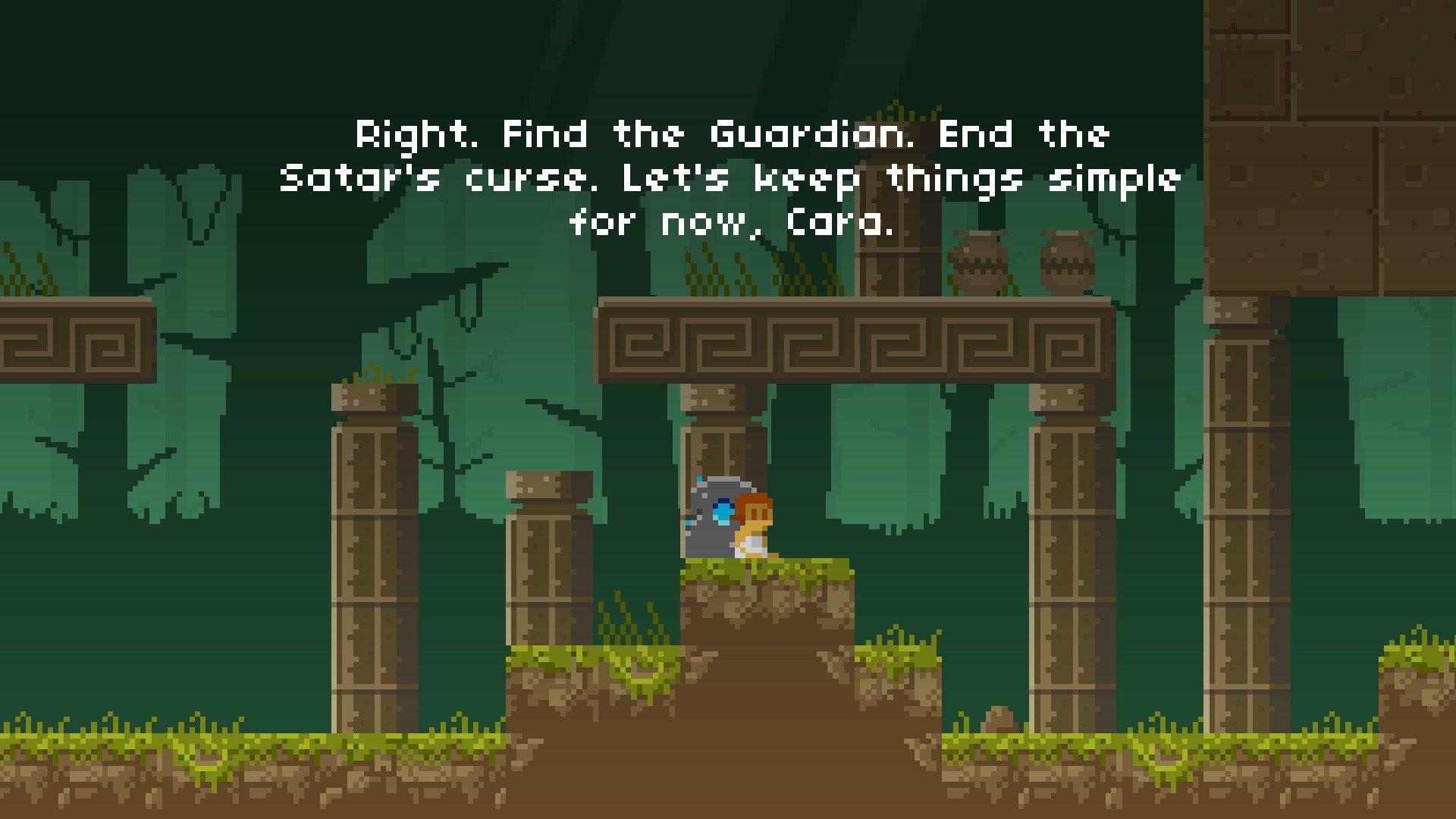
Elliot Quest stars a little guy named Quest, I mean, Elliot. When the game begins, we know precious little about him and his quest. His brief, cryptic narration states that no matter how many times he dies, he always comes back. He must find a Guardian and end the Satar's curse.
That's the whole explanation players get early on, and it isn't enough. As you progress through the game, Elliot will sometimes have more cryptic thoughts that basically mean nothing. The developer seems to be going for a Braid-like effect with the hero's random musings, but they're usually more annoying than intriguing.
Play for long enough, though, and you'll experience enough cinematics to piece together the narrative. Elliot has been cursed by a demon. Unable to die, he will slowly become a demon himself unless he finds a cure. Meanwhile, his wife has gone missing. Could these problems be connected?
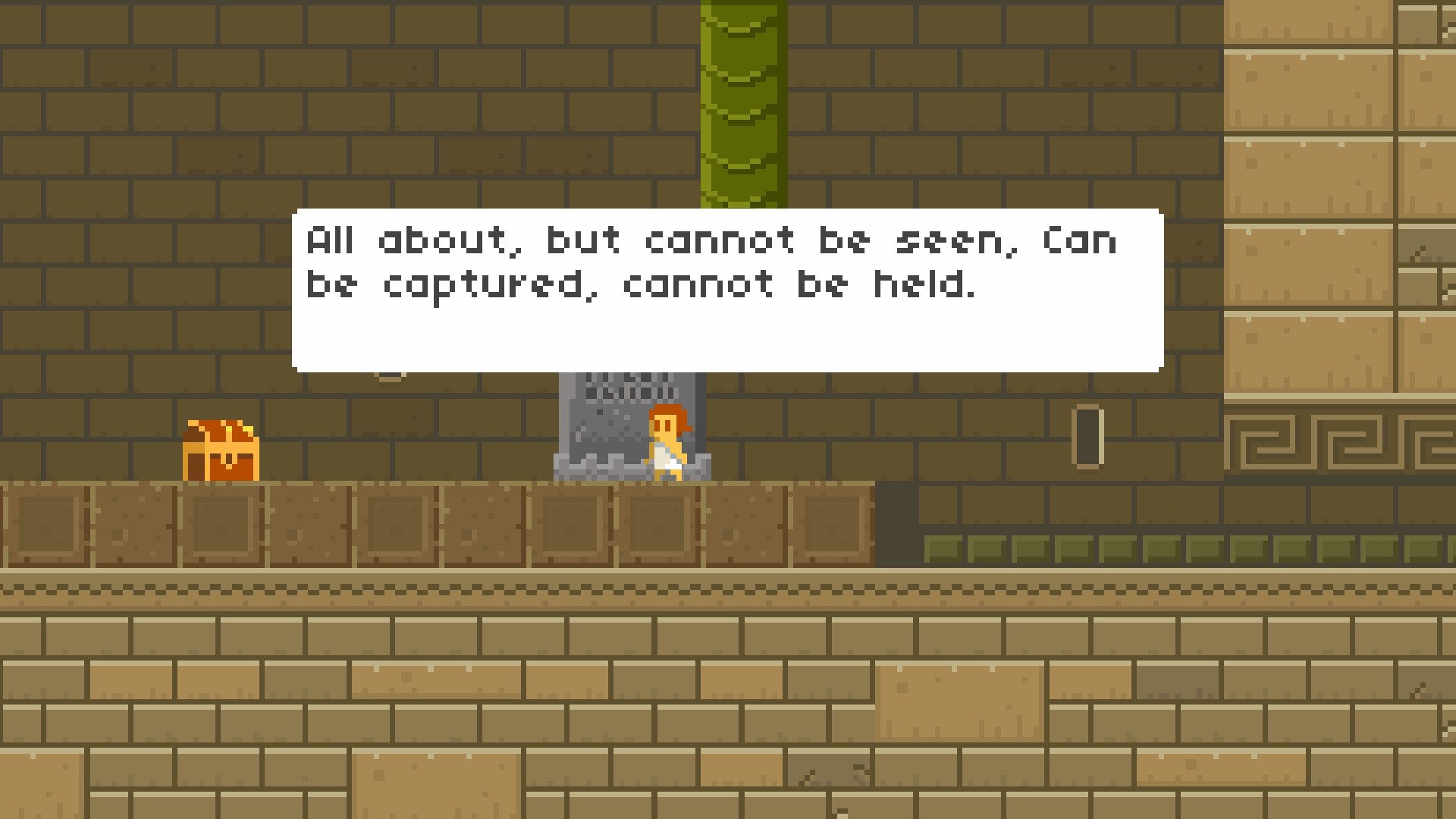
If you can put up with some vagaries, it's an interesting enough premise. But the basic information is doled out way too late compared to pretty much every other game ever. The store description tells you more about the story than the first few hours of gameplay!
Another example of Elliot Quest's love mystery working against its best interests is the control options. From the main menu, players can select from four control types: A, B, C, and D. But the game doesn't explain what the buttons do or what the difference between control types are. So you're essentially making a blind, random choice of control types before you even start playing. What the heck?
All the latest news, reviews, and guides for Windows and Xbox diehards.
I'm on a quest!
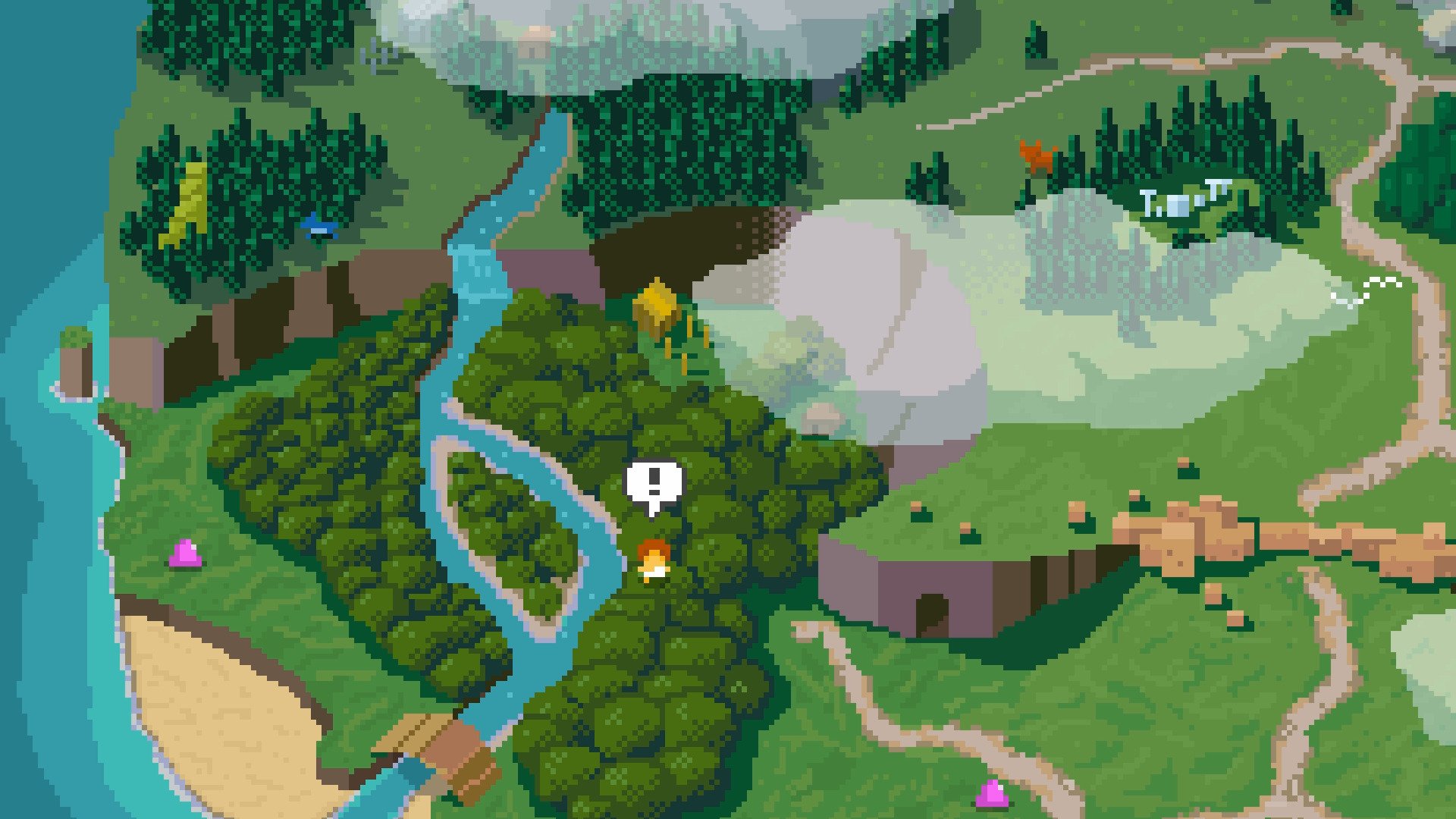
Elliot Quest is patterned after the general structure of Zelda II, in that players travel across a world map to reach a series of levels. Some levels or portions of them will be inaccessible to Elliot until he acquires upgrades, so you can't just go everywhere right away. With the interconnected structure of Metroidvania having become the standard for platforming adventures nowadays, it's cool to find this one built so differently.
Still, the actual map could be a lot better. There are no predefined pathways, so you can go any which way until you reach a level or obstacle. But the map doesn't allow diagonal movement, creating a clunky feel at odds with the lack of pathways. Also, levels are not visibly marked on the map. You have to look around until an exclamation point appears over Eliot's head, indicating an area he can visit. The idea is to encourage exploration. But in practice, the lack of markers just results in more unwieldiness.
The core platforming gameplay fares a bit better. Elliot can only run, jump, and shoot arrows initially. The arrows have a limited range and downward trajectory. Our hero starts with only three hearts, but he'll pick up more by defeating certain bosses.
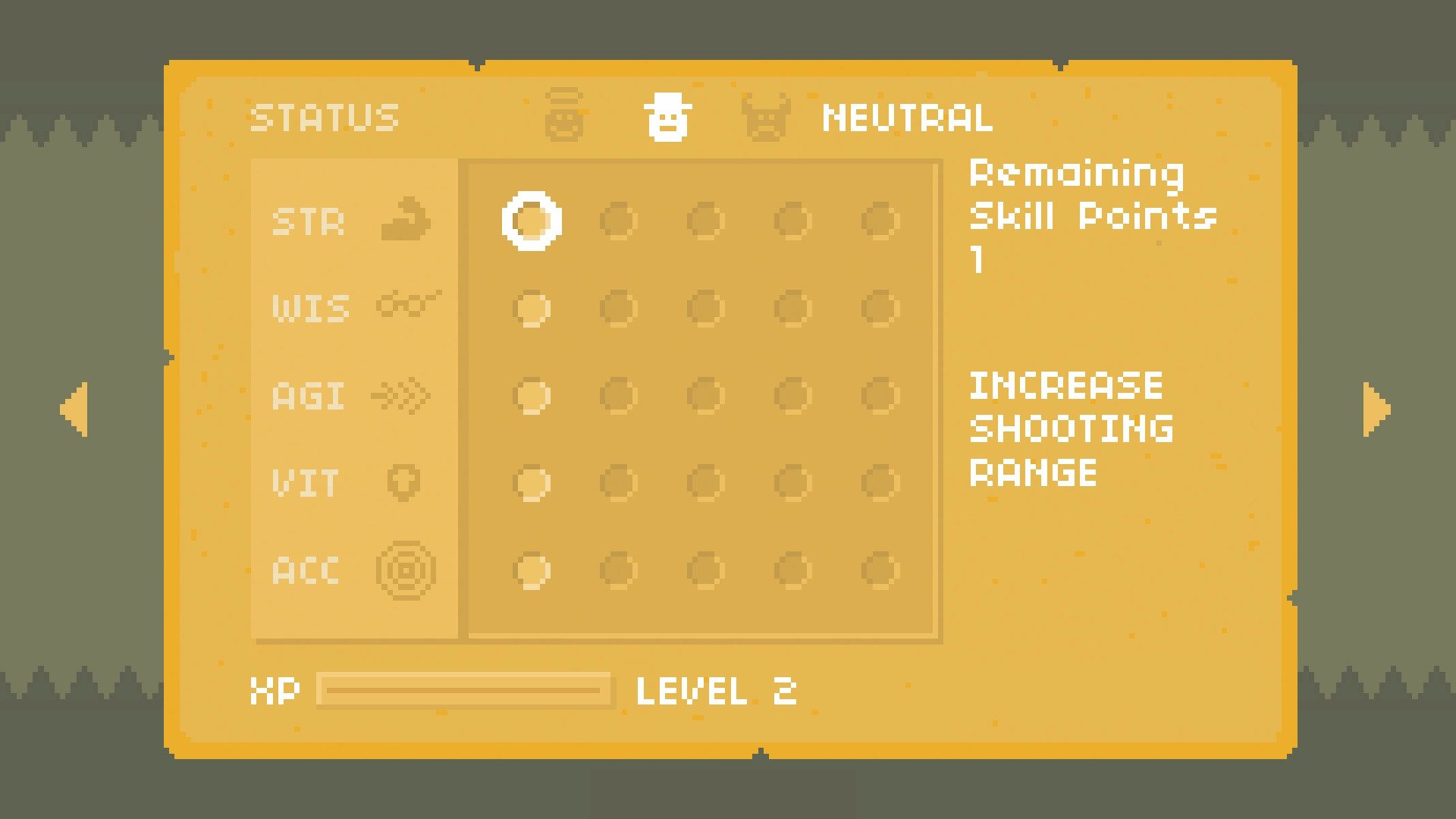
Defeating enemies grants Elliot experience. You wouldn't know that at first, because the only indicator of XP gain is a meter hidden away at the bottom of the skills page. It's so tucked away, I first learned of the leveling system after killing enough enemies to level up. Meanwhile, a chain meter is always displayed at the bottom of the screen. When filled, this meter apparently results in enemies dropping items more frequently. So the game displays something that you absolutely don't need to see (the chain) while hiding an actual useful stat like XP. Argh.
Leveling up has its benefits though, because you get a point to allocate to one of five skills. Strength makes your shots fly farther and eventually unlocks a Mega Man-style charge shot; wisdom increases MP gain; agility improves firing rate; vitality increases health gain; and accuracy adds critical hit effects. They're all useful skills, so grinding for XP is a good idea.
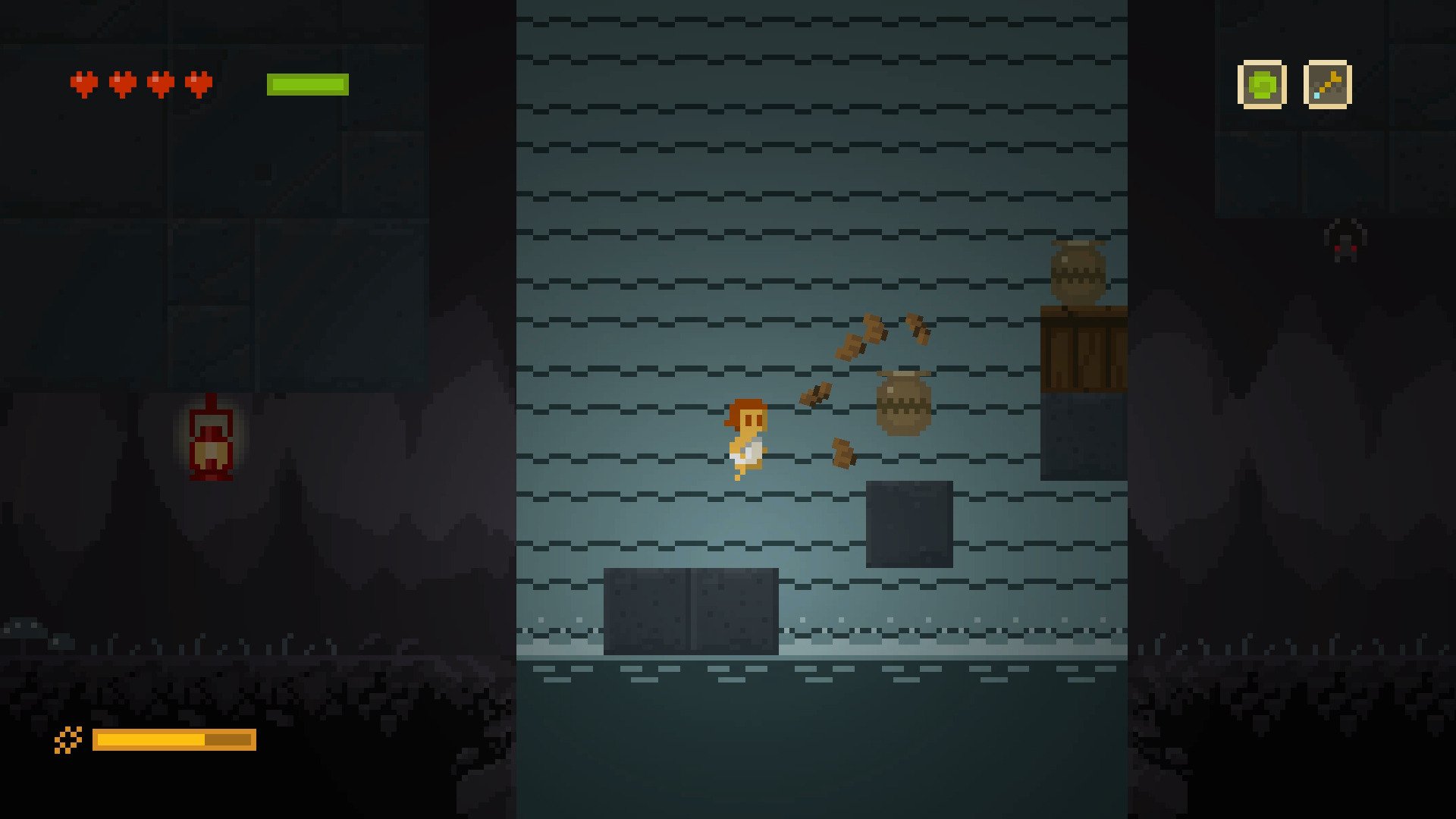
Elliot loses XP when he dies, which is less good. You're bound to fall down pits or take too many hits fairly often (especially with occasionally punishing level designs), so the XP loss really stings. Losing gold wouldn't be great either, because it's needed to buy items from shops. My vote would be to ditch the death penalty altogether, as it's an outdated concept that mixes poorly with certain types of games.
You can check the map at any time to track where you've been within a level, but it only displays rooms without showing any details like what they contain or how they connect. Find the actual map item within a level and the rooms you haven't reached yet will be filled in. Levels also have small keys to open doors and a big key needed to open the boss door – all Zelda-style touches.
Items and magic
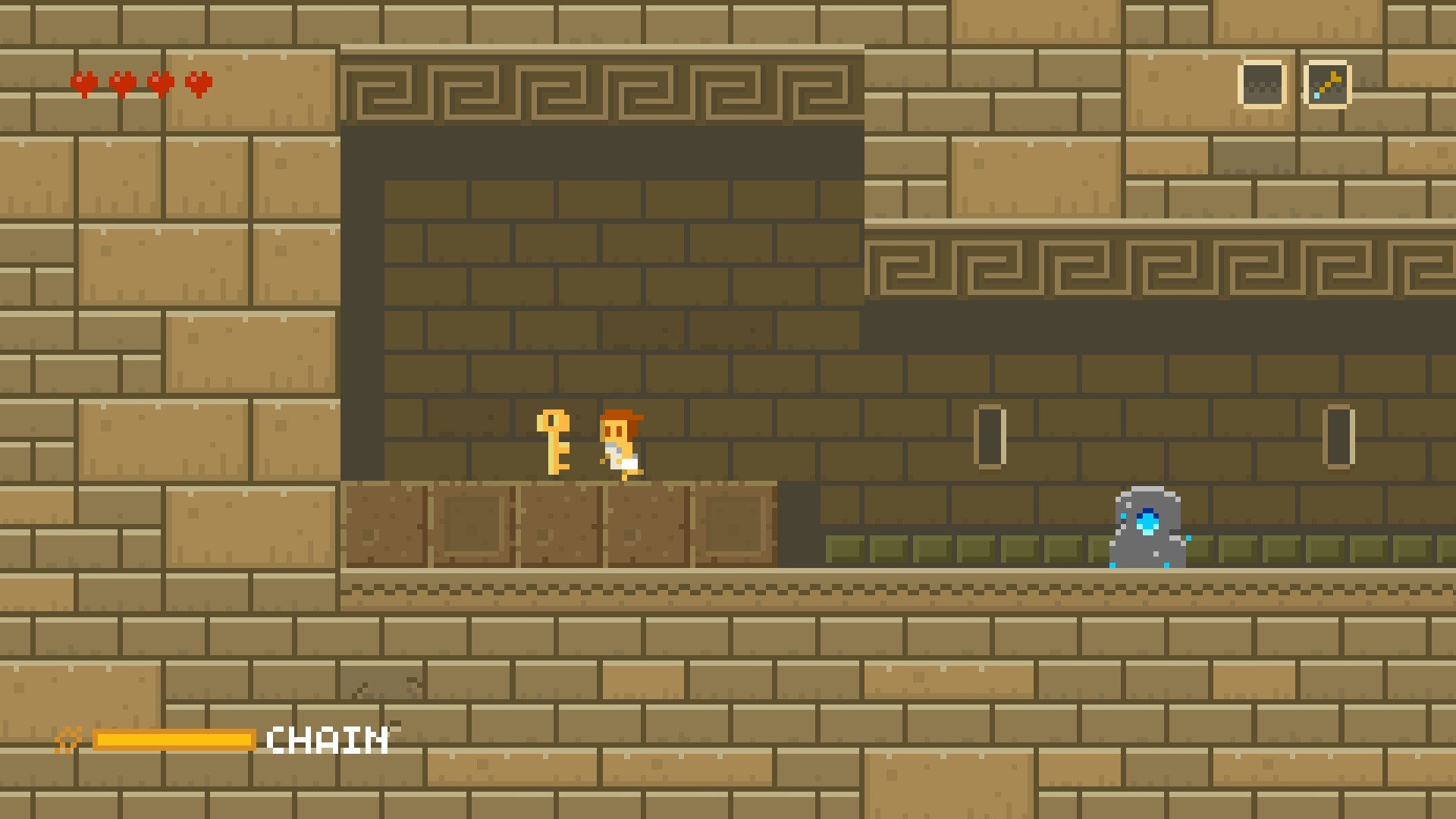
Elliot will eventually discover items like a shield (that only blocks projectiles while standing still, annoyingly), bombs for destroying walls, a candle that temporarily lights up lanterns in dark caves, wings for double-jumping, and many more items.
He also gains five types of magic, starting with wind magic that allows him to move through green blocks (I'm not sure what they're supposed to be), float up in a draft, and suck nearby items towards himself. Using spells depletes the magic meter, which can be refilled by collecting drops from enemies, using a magic potion from the inventory, or by reaching a gravestone (checkpoint).
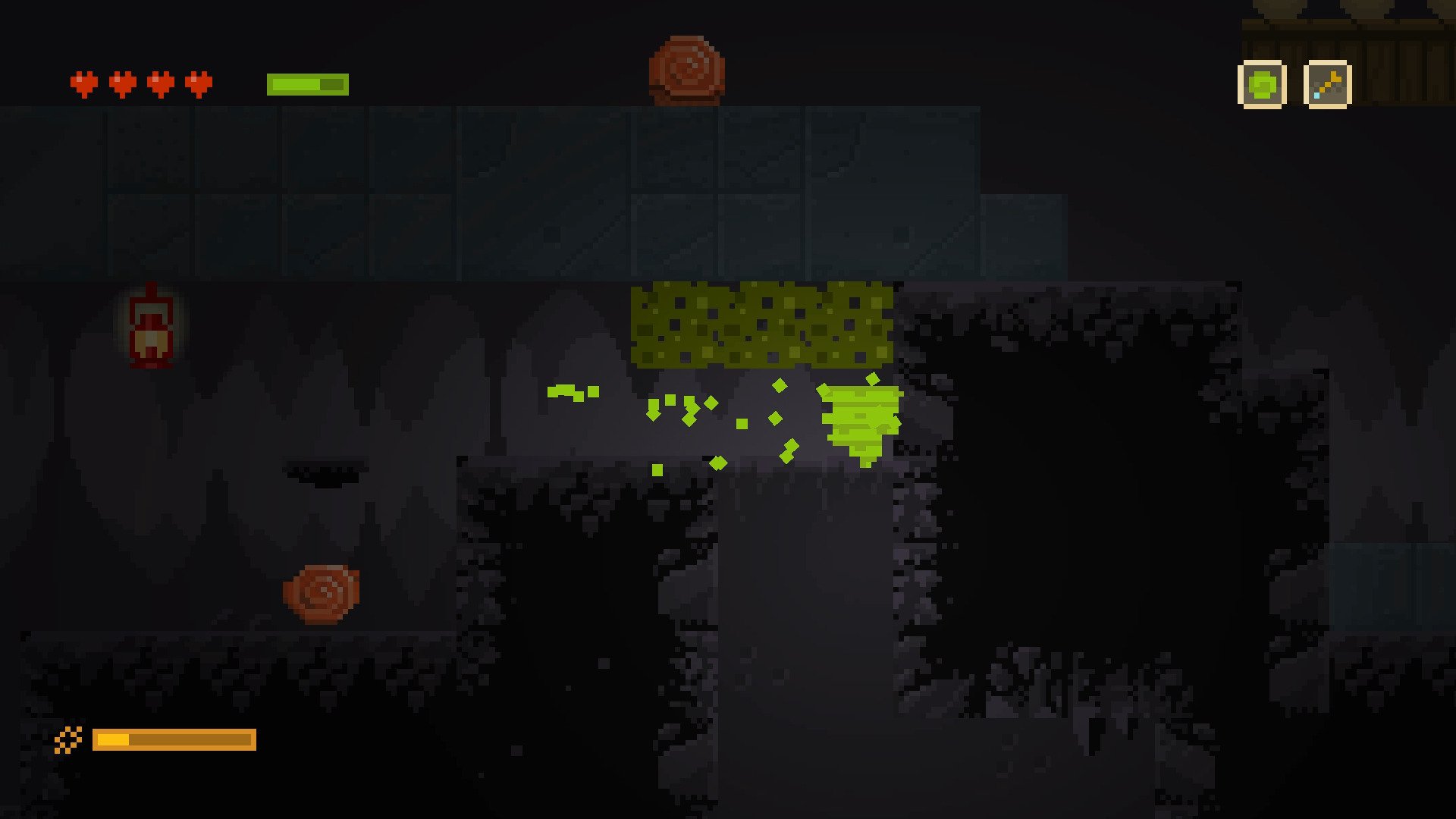
The problem with all of these items and powers is the game never explains how to use them. Elliot Quest has a bizarre aversion to in-game text outside of narration and NPC conversations, particularly tutorial text. You have to try an item to figure out what it does. The game doesn't even tell you which button uses magic and items (it's "Y" on Xbox One).
You can also only equip either a spell or magic at one time – not both. Switching between them requires pace-hurting trips to the inventory menu. Recent retro remake Wonder Boy: The Dragon's Trap added separate buttons for magic and items, as well as allowing players to switch items with the bumper buttons. Those kind of improvements made Dragon's Trap a better game without diluting its old-school feel. Elliot Quest would do well to focus on creating the best player experience over strict adherence to 1980s-era game design.
Achievements
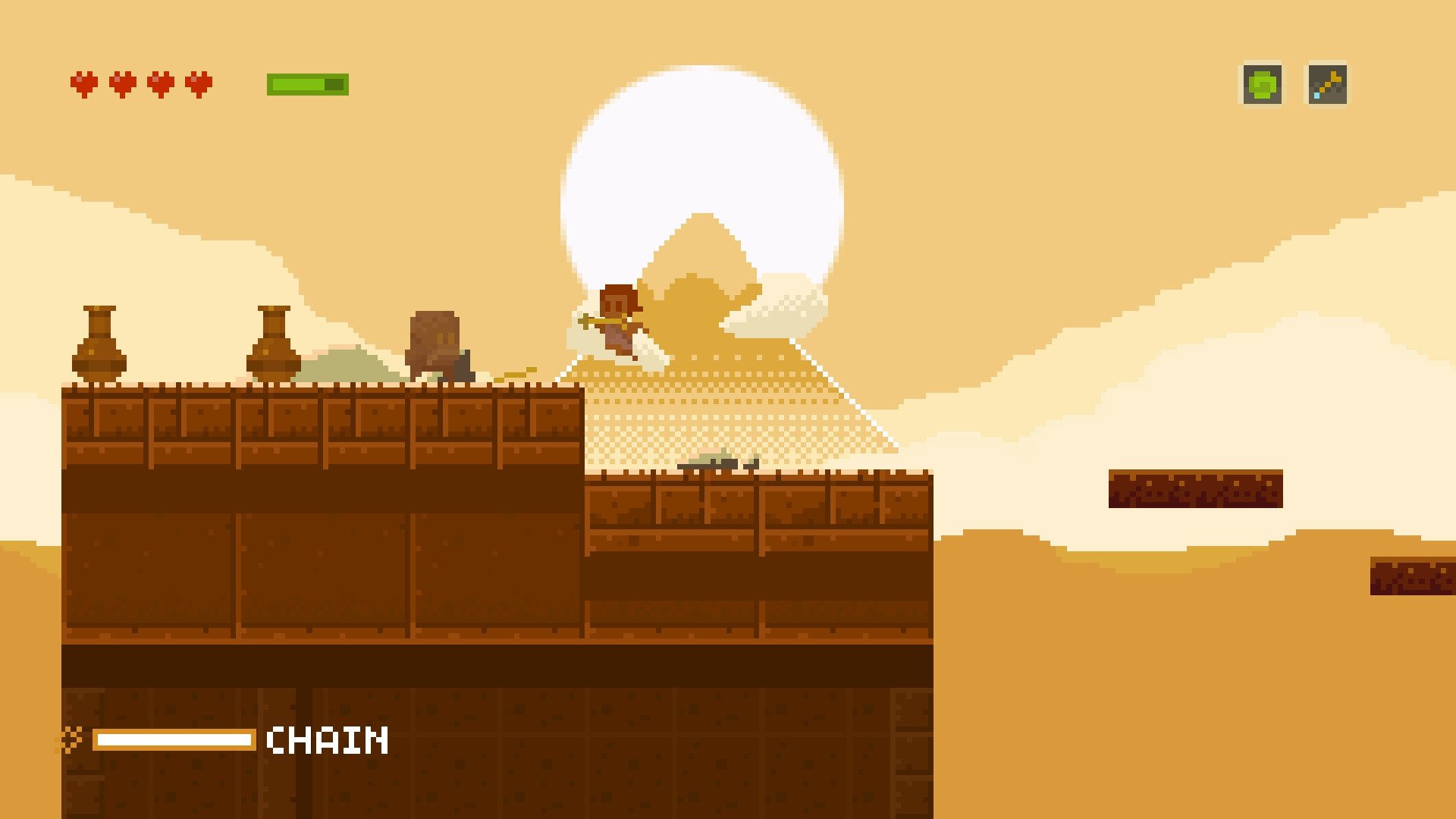
The Xbox One version of Elliot's Quest offers 22 Achievements worth a total of 1,000 Gamerscore. Many of these are awarded for defeating certain bosses or finding key items. Achievement hunters will have to find all 10 crystals, a form of collectible that sometimes opens access to new areas.
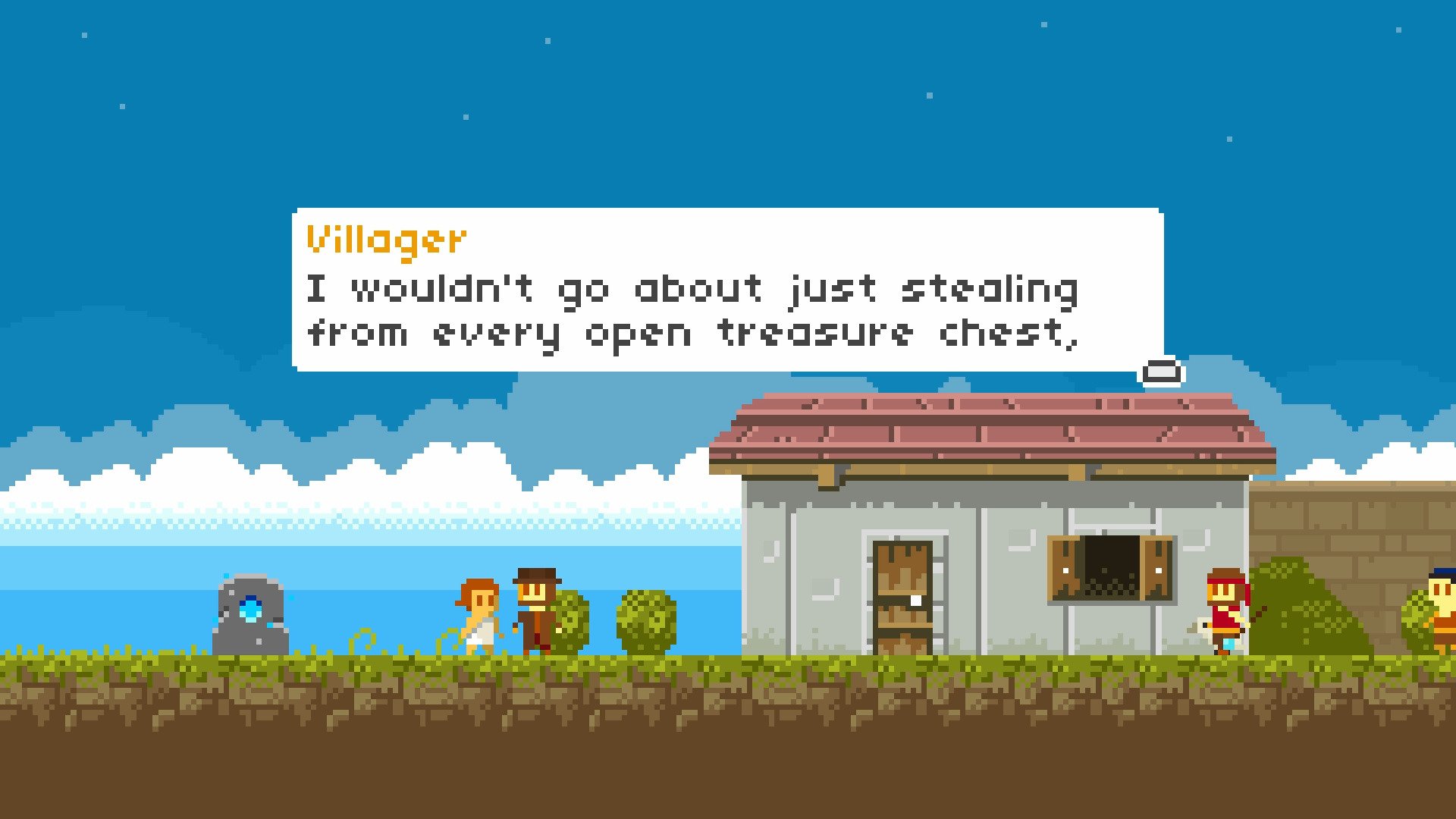
Elliot Quest also has three different endings. All three have an Achievement, so you'll need to play through three times if you want the full Gamerscore. The endings are based on a karma system. Avoid stealing from NPCs or breaking certain objects and you'll qualify as good. Steal items, team up with a rogue, and break things to be a bad guy. Mix and match to come in neutral.
Naturally, the game does not explain the karma system. But you can at least see your current karma rating on the status screen. I recommend using the Elliot Quest FAQ at GameFAQs for guidance on the karma system and just to make it through the game in general, unless you want to be confused at every turn.
Overall impressions of Elliot Quest for Xbox One
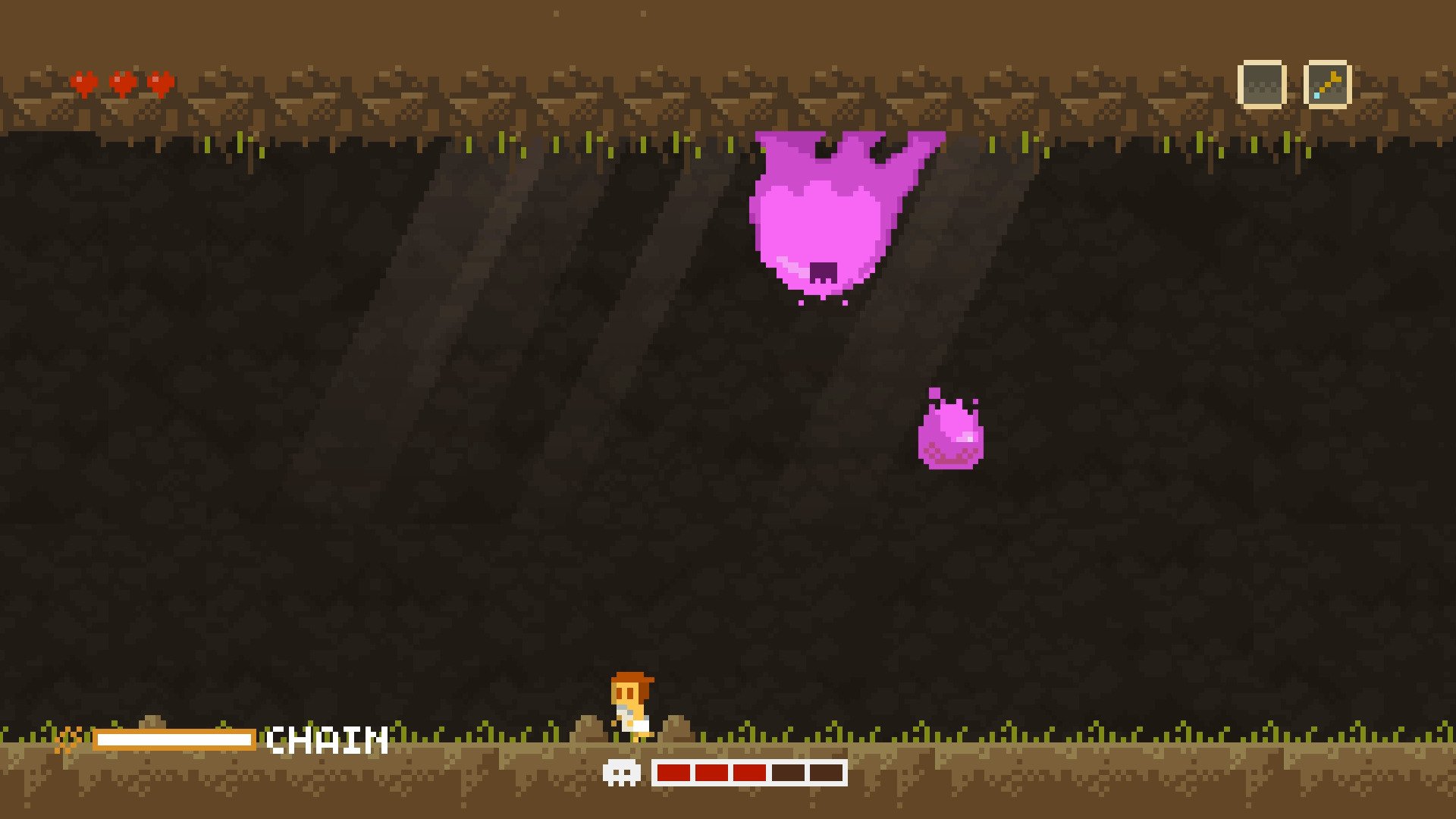
Elliot Quest looks very good for a retro-themed game, simplistic sprites notwithstanding. The backgrounds make strong use of color and have plenty of delightful parallax scrolling. The music by Michael Chait is especially good, although you'll have to jack your speakers all the way up to hear it. The Xbox One version's audio levels are mixed ridiculously low, but the developer is investigating the issue.
Despite the quality aesthetics and cool Zelda II-inspired game structure, Elliot Quest is a hard game to recommend. The stubborn refusal to explain anything is just one of many obnoxious design decisions that distance the player from the game. I normally love this style of game, but even I gave up in annoyance after a while. If you like old school games and can stomach deliberately obscure design, maybe you'll enjoy this one more than I did.
Pros:
- Explore a world map and venture into platforming levels like in Zelda II.
- A fantastic soundtrack evocative of 16-bit classics.
Cons:
- No explanations or guidance leads to lots of frustration (or the need to look up help online).
- Story is doled out unevenly and veers into pretention at times.
- Slow dialog text can't be skipped or advanced, so you have to wait it out.
- Lot of little design issues add up to an overall frustrating experience.
Elliot Quest costs $14.99 and is available on Xbox One, PlayStation 4, Nintendo Switch, and Steam.
Xbox One review code provided by the publisher.

Paul Acevedo was formerly a Games Editor at Windows Central. A lifelong gamer, he has written about videogames for over 15 years and reviewed over 350 games for our site. Follow him on Twitter @PaulRAcevedo. Don’t hate. Appreciate!
